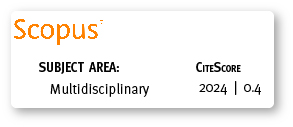Exposición, vulnerabilidad y perfil epidemiológico de trabajadores informales en el botadero a cielo abierto del cantón Portoviejo, Ecuador
DOI:
https://doi.org/10.18537/mskn.05.01.05Palabras clave:
recicladores informales, ocupación profesional, exposición, vulnerabilidad, perfil de saludResumen
El presente trabajo abarca un amplio estudio de la exposición, vulnerabilidad y el perfil epidemiológico de los recicladores informales y sus familias en el vertedero a cielo abierto del Cantón Portoviejo. Entrevistas y encuestas extensas posibilitaron la evaluación del proceso integrado de reciclaje y develaron detalles de las condiciones de vida y exposición ambiental de los trabajadores informales y sus familias. Además del proceso de discusión y reflexión colectiva, los trabajadores informales fueron sometidos a un examen clínico, a dos pruebas psicológicas (Epiestrés y Goldberg), y una prueba neuroconductual (Pentox). El estudio etnográfico transversal permitió la identificación y delimitación de los trabajadores informales y sus familias en 5 clases distintivas en función del tipo de actividad de reciclaje, las condiciones socio- económicas y de vida, la exposición y la vulnerabilidad a la contaminación, y el perfil epidemiológico. Se sugiere utilizar los resultados del estudio como base para un debate público por el fortalecimiento de las iniciativas de reciclaje informal así como la eliminación de la discriminación y la opresión hacia los recicladores y sus familias, que pertenecen a los estratos más pobres de la sociedad.
Descargas
Métricas
Citas
Ali, M., 1999. The informal sector: What is it worth? Waterlines, 17(3), 10-2.
Ander-Egg, E., 2003. Repensando la investigación-acción participativa. 2003 (4ª ed.). Grupo Editorial Lumen Hvmanitas, Buenos Aires, Argentina, 151 pp.
Bauman, Z., 2005. Vidas desperdiciadas: la modernidad y sus parias. Editorial Paidós Iberica, Barcelona, España, 176 pp.
Berthier, H. C., 2003. Garbage, work and society. Resour. Conserv. Recy., 39(3), 193-210.
Bonfanti, F., 2004. Los residuos sólidos urbanos. Universidad Nacional del Nordeste, Facultad de Humanidades, Argentina, 10 pp. Descargado de http://www.ecoportal.net/Temas_Especiales/ Basura_Residuos/Los_Residuos_Solidos_Urbanos el 12 de agosto de 2013.
Breilh, J., 1993. Trabajo hospitalario, estrés y sufrimiento mental (1a ed.). Universidad Autónoma Metropolitana, México D.F., 23, 21-37.
Breilh, J., N. Pagliccia, A. Yassi, 2012. Chronic pesticide poisoning from persistent low-dose exposures in Ecuadorean floriculture workers: toward validating a low-cost test battery. Int. J. Occup. Environ. Health, 18(2), 7-21.
Breilh, J., 2003. Epidemiología crítica: Ciencia emancipadora e interculturalidad (2ª ed.). Editorial Lugar, Buenos Aires, Argentina, 320 pp.
Charuvichaipong, C., E. Sajor, 2006. Promoting waste separation for recycling and local governance in Thailand. Habitat Int., 30, 579-594.
Chávez G., J. Daza, 2003. Reflexión metodológica sobre la aplicación concreta de la investigación acción participativa (IAP) en contextos rurales del Estado de Colima. Estudios sobre las culturas contemporáneas, 9(17), 115-146.
Damghani, A., G. Savarypour, E. Zand, R. Deihimfard, 2008. Municipal solid waste management in Tehran: Current practises, opportunities and challenges. Waste Manage., 28, 929-934.
Eerd, V., 1996. The occupational health aspects of waste collection and recycling. A survey of the literature. WASTE Working Document 4, Part 1, Urban Waste Expertise Program (UWEP), 74 pp. Descargado de http://docs.watsan.net/Downloaded_Files/PDF/Eerd-1996-Occupational. pdf en marzo de 2013.
Ezeah, C., J.A. Fazakerley, C.L. Roberts, 2013. Emerging trends in informal sector recycling in developing and transition countries. Waste Manage., 33, 2509-2519.
Fals Borda, O., 2008. Orígenes universales y retos actuales de la IAP (investigación acción participativa). Peripecias Nº 110. Disponible de http://www.peripecias.com/mundo/ 598FalsBordaOrigenesRetosIAP.html.
Ferreira, J., L. Anjos, 2001. Aspectos de saúde coletiva e ocupacional associados à gestão dos resíduos sólidos municipais. Cad. Saúde Pública, 17(3), 689-696.
Freire, P., 1973. Pedagogía del oprimido. Tesis de doctorado. Editores Tierra Nueva y Siglo XXI, Buenos Aires, Argentina, 175 pp.
Goldberg, D., 1978. Manual for the general health questionnaire. National Foundation for Educational Research, Windsor, UK.
Greenpeace Argentina, 2013. Basura cero. Qué es basura cero. Argentina. Descargado de http://www.greenpeace.org/argentina/es/campanas/contaminacion/basura-cero/ en octubre de 2013.
Gutberlet, J., 2008. Empowering collective recycling initiatives: Video documentation and action research with a recycling co-op in Brazil. Resour. Conserv. Recy., 52, 659-670.
Gutberlet, J., A. Baeder, 2008. Informal recycling and occupational health in Santo Andre, Brazil. Int. J. Environ. Heal. R., 18, 1-15.
Matter, A., M. Dietschi, C. Zurbrügg, 2013. Improving the informal recycling sector through segregation of waste in the household - The case of Dhaka Bangladesh. Habitat Int., 38, 150-156.
Medina, M., 2003. Serving the unserved: informal refuse collection in Mexican cities. In: Solid waste collection that benefits the urban poor. CWG Workshop, Dar es Salaam, Tanzania, Paper No. 17, 88 pp. Descargado de http://www.skat.ch/publications/ prarticle.2005-09-29.7288084326/prarticle.2005-11-25.5820482302/skatpublication.2005-12-02.0331566765/file en junio 2013.
Medina, M., M. Dows, 2000. A short history of scavenging. Comparative Civilizations Review, 42, 7-17.
Monirozzaman, S., Q. Bari, T. Fukuhara, 2011. Recycling practises of solid waste in Khulna City, Bangladesh. J. Solid Waste Technol. Manage., 37, 1-15.
Paul, J.G., J. Arce-Jaque, N. Ravena, S.P. Villamor, 2012. Integration of the informal sector into municipal solid waste management in the Philippines - What does it need? Waste Manage., 32, 2018-2028.
Rego, R. M. Barreto, C. Killinger, 2002. O que é lixo afinal? Como pensam mulheres residentes na periferia de um grande centro urbano. Cad. Saúde Pública, 18(6),1583-1592.
Rojas, J., 2002. Investigación Acción-Participativa (IAP), 5 pp. Universidad de los Andes, Venezuela. Descargado de http://www.comminit.com/la/lapm/sld-1947.html en marzo de 2013.
Samaja, J., 1994. Epistemología y metodología: elementos para una teoría de la investigación científica (Edición ampliada). Editorial Eudeba, Buenos Aires, Argentina, 382 pp.
Scheinberg, A., S. Spies, M.H. Simpson, A.P.J. Mol, 2011. Assessing urban recycling in low- and middle-income countries: Building on modernised mixtures. Habitat Int., 35, 188-198.
Schmelkes S., 1986. Fundamentos teóricos de la investigación acción participativa. En Picón, C. (Coord.). Investigación participativa: Algunos aspectos críticos y problemáticos. Biblioteca Digital CREFAL, pp.74-86. Disponible de http://www.crefal.edu.mx/biblioteca_digital/ coleccion_crefal/cuadernos/cua18/cap3.pdf.
Sembiring, E., V. Nitivattananon, 2010. Sustainable solid waste management toward an inclusive society: Integration of the informal sector. Resour. Conserv. Recy., 54, 802-809.
Silva, A., R. Silveira Bernardes, L.R. Santos Moraes, J. D’Arc Parente dos Reis, 2002. Critérios adotados para seleção de indicadores de contaminação ambiental relacionados aos resíduos sólidos de serviços de saúde: uma proposta de avaliação, Cad. Saúde Pública; 18(5), 1401-1409.
Solíz, F., 2011. La cartografía de la basura en el Ecuador. Fundación Acción Ecológica, Quito, Ecuador, 12 pp. Descargado de http://www.accionecologica.org/images/2005/desechos/ alertas/alerta_6.pdf en agosto de 2013.
Solíz, F., 2013. Metabolismo del desecho en la determinación socioambiental de la salud. Tesis doctoral (no publicada), Universidad Andina Simón Bolívar, Quito, Ecuador, 457 pp.
Tangri, N., 2010. Respeto a los recicladores: Protegiendo el clima a través de basura cero. Alianza Global para Alternativas a la Incineración (www.no-burn.org), Buenos Aires, Argentina, 8 pp. Descargado de http://noalaincineracion.org/wp-content/uploads/Respeto-a-los-Recicladores.pdf en octubre 2013.
Toledo, V., M. Gonzáles de Molina, 2007. El metabolismo social: las relaciones entre la sociedad y la naturaleza. En: Garrido, F., M. González de Molina, J.L. Serrano, J.L. Solana (Eds.). El paradigma ecológico en las Ciencias Sociales. Editorial Icaria, Barcelona, España, 304 pp.
Veraza, J., 2008. Subsunción real del consumo al capital. Editorial Itaca, México, 333 pp. Descargado de http://jorgeveraza.com/sites/default/files/Subsunci%C3%B3n%20 real%20del%20consumo_0.pdf en octubre de 2013.
Wilson, D.C., A.O. Araba, K. Chinwah, C.R. Cheeseman, 2009. Building recycling rates through the informal sector. Waste Manage., 29, 629-635.
Wilson, D.C., C. Velis, C. Cheeseman, 2006. Role of informal sector recycling in waste management in developing countries. Habitat Int., 30, 797-808.
Zen, I.S., Z.Z. Noor, R.O. Yusuf, 2014. The profiles of household solid waste recyclers and non-recyclers in Kuala Lumpur, Malaysia. Habitat Int., 42, 83-89.
Descargas
Publicado
Cómo citar
Número
Sección
Licencia
Copyright © Autors. Creative Commons Attribution 4.0 License para cualquier artículo enviado a partir del 6 de junio de 2017. Para los manuscritos presentados anteriormente, se utilizó la licencia CC BY 3.0.
![]()
Usted es libre de:
 |
Compartir — compartir y redistribuir el material publicado en cualquier medio o formato. |
 |
Adaptar — combinar, transformar y construir sobre el material para cualquier propósito, incluso comercialmente. |
Bajo las siguientes condiciones:
 |
Atribución — Debe otorgar el crédito correspondiente, proporcionar un enlace a la licencia e indicar si se realizaron cambios. Puede hacerlo de cualquier manera razonable, pero de ninguna manera que sugiera que el licenciador lo respalda a usted o a su uso. |
| Sin restricciones adicionales: no puede aplicar términos legales o medidas tecnológicas que restrinjan legalmente a otros a hacer cualquier cosa que permita la licencia. |
Mayor información sobre este acuerdo de autoría y licencia, transferencia de derechos o solicitudes de reproducción, pueden ser consultados en este enlace.









